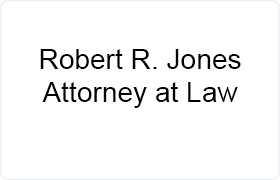 Cypress Felony Lawyers, Texas
Cypress Felony Lawyers, Texas
Sponsored Law Firm
-
 x
x

Click For More Info:
-
Robert R. Jones Attorney at Law
3526 E. FM 528 Suite 204 Friendswood, TX 77546» view mapCriminal Defense Expert Representation for Reasonable Rates
If you need representation, call me 24/7.
800-883-8760
Lawyers
<
11-11 of 11 matches



 Robert Jones Friendswood, TX
Robert Jones Friendswood, TX AboutRobert R. Jones Attorney at Law
AboutRobert R. Jones Attorney at Law Practice AreasSpecializations
Practice AreasSpecializations